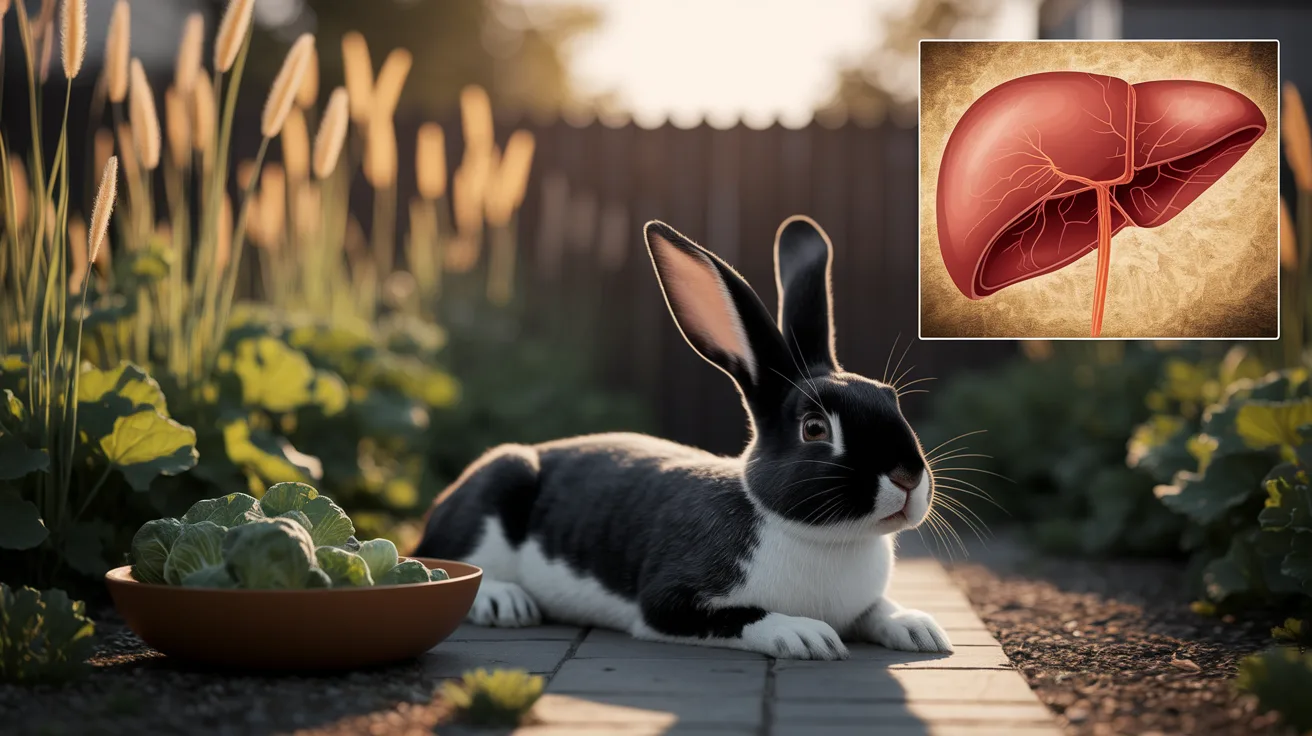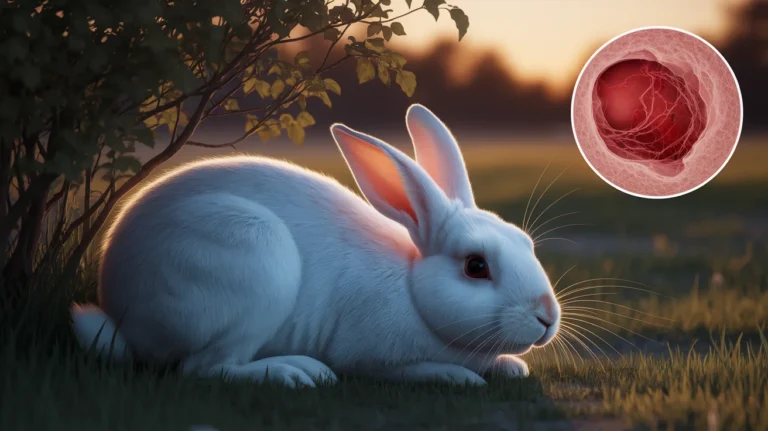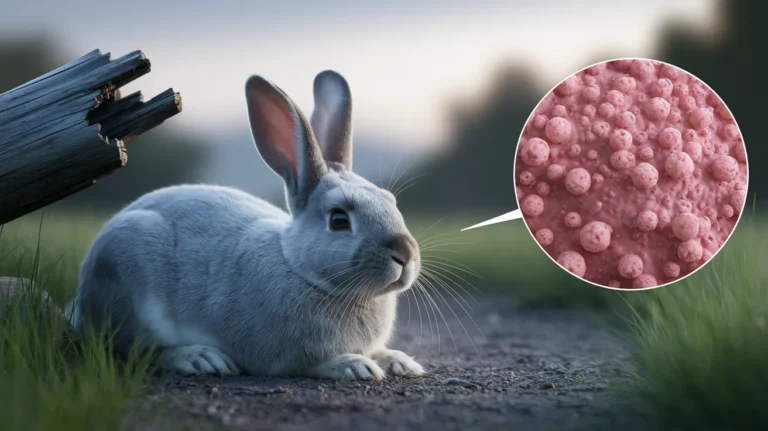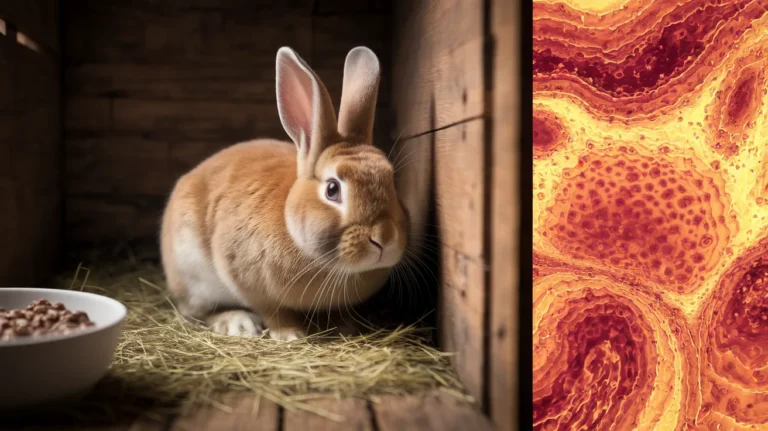Discover the 6 key symptoms of enteritis in rabbits and learn effective treatment methods to protect your pet from this dangerous intestinal condition.
Enteritis in rabbits is one of the most common and potentially life-threatening gastrointestinal conditions affecting these beloved pets. This inflammatory condition of the intestinal tract requires prompt recognition and treatment, as it can progress rapidly from mild discomfort to a critical emergency within hours. Whether you’re an experienced rabbit owner or new to rabbit care, understanding the symptoms, causes, and treatment options for enteritis is essential for maintaining your pet’s health and well-being.
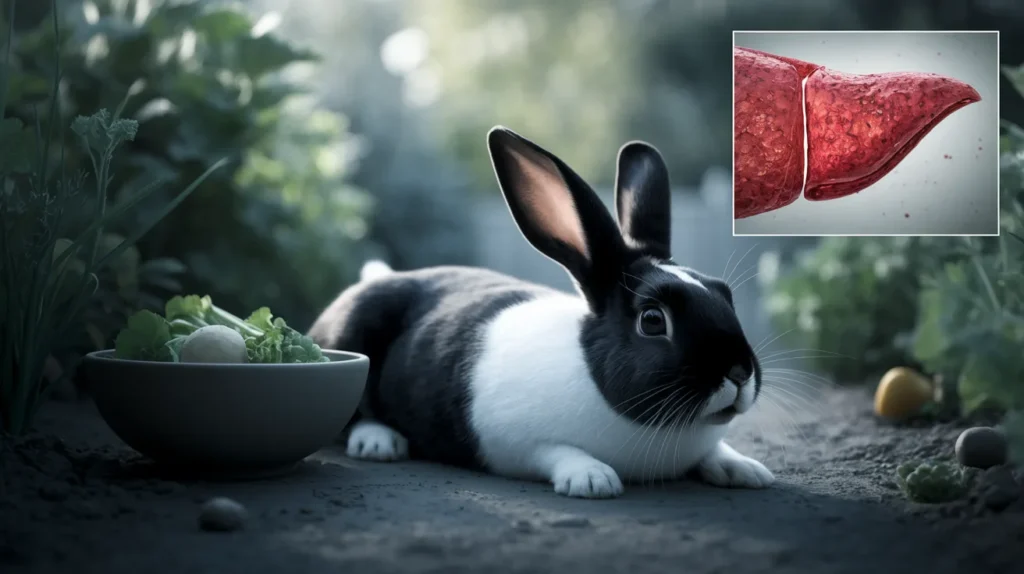
Table of Contents
Rabbits have extremely sensitive digestive systems that are specially adapted for their herbivorous diet. Their gastrointestinal tract is finely balanced, making them particularly susceptible to digestive disturbances that can quickly escalate into serious health issues. Enteritis—inflammation of the intestines—remains a leading cause of illness and mortality in domestic rabbits, with various forms ranging from mild to severe.
In this comprehensive guide, we’ll explore the six key symptoms of enteritis in rabbits, delve into the underlying causes, examine the most effective treatment methods, and provide practical prevention strategies to keep your furry companion healthy. By recognizing the early warning signs and understanding proper management techniques, you can significantly improve outcomes for rabbits suffering from this dangerous condition.
Understanding Enteritis in Rabbits
What is Enteritis?
Enteritis refers to inflammation of the intestinal lining, particularly the small intestine. In rabbits, this condition can take several forms, each with distinct characteristics but overlapping symptoms:
- Mucoid Enteritis: Characterized by excessive mucus production in the intestines, often affecting young rabbits between 7-14 weeks of age.
- Dysbiosis (Intestinal Dysbiosis): An imbalance in the normal bacterial flora of the rabbit’s gut, often triggered by inappropriate antibiotic use or dietary changes.
- Coccidiosis: A parasitic infection caused by the protozoan Eimeria, commonly affecting the intestinal tract of rabbits.
- Tyzzer’s Disease: A bacterial infection caused by Clostridium piliforme that can lead to severe enteritis, liver damage, and often death.
- Proliferative Enteropathy: Caused by Lawsonia intracellularis bacteria, resulting in thickening of the intestinal walls.
- Enterotoxemia: Often caused by Clostridium spiroforme, producing toxins that damage the intestinal lining.
According to recent veterinary studies, approximately 30-40% of all rabbit health emergencies are related to gastrointestinal issues, with enteritis being among the most common. The mortality rate for untreated cases can exceed 70%, highlighting the critical nature of early intervention.
The Rabbit Digestive System: Why It’s Vulnerable
To understand enteritis in rabbits, it’s important to recognize the unique aspects of rabbit digestion:
- Rabbits are obligate herbivores with a hindgut fermentation system
- They cannot vomit, making them unable to expel toxins or harmful substances
- The rabbit gut relies on constant movement (peristalsis) to function properly
- Beneficial bacteria in the cecum are essential for proper digestion
- The digestive system accounts for approximately 40% of the rabbit’s immune system
This specialized system, while efficient for processing plant matter, creates vulnerabilities that can quickly cascade into serious health problems when disrupted.
6 Key Symptoms of Enteritis in Rabbits
Recognizing the symptoms of enteritis quickly can mean the difference between successful treatment and a fatal outcome. Here are the six primary symptoms to watch for:
1. Changes in Fecal Output
The most immediate and observable sign of enteritis in rabbits is often a change in their droppings. Normal rabbit fecal pellets should be uniform in size, relatively firm, and plentiful. With enteritis, you may observe:
- Diarrhea: Loose, watery stool that may contain mucus or blood
- Small, misshapen fecal pellets: Indicating slowed gut motility
- Complete cessation of fecal output: A serious emergency requiring immediate veterinary care
A healthy adult rabbit typically produces 200-300 fecal pellets per day. Any significant reduction in this number or change in consistency should be cause for concern.
2. Appetite Loss and Weight Reduction
Rabbits with enteritis typically show:
- Reduced interest in food, often refusing favorite treats
- Selective eating, consuming only certain foods while avoiding others
- Complete anorexia (refusal to eat), which can develop rapidly
- Noticeable weight loss, with rabbits losing 5-10% of body weight within 24-48 hours in severe cases
Weight loss is particularly dangerous for rabbits, as it can quickly lead to hepatic lipidosis (fatty liver disease) when fat stores are mobilized too rapidly during periods of not eating.
3. Lethargy and Behavioral Changes
A rabbit suffering from enteritis will typically display:
- Decreased activity levels and reluctance to move
- Hunched posture, indicating abdominal discomfort
- Isolation from companions or hiding behavior
- Reduced grooming, resulting in an unkempt appearance
- Teeth grinding (bruxism), a sign of pain in rabbits
Normally active and curious animals, rabbits tend to become withdrawn and subdued when suffering from enteritis, often sitting in corners with a hunched posture that indicates abdominal pain.
4. Abdominal Discomfort and Bloating
Rabbits with enteritis frequently exhibit:
- Visible bloating or distention of the abdomen
- Tenderness when the abdomen is gently palpated
- Reluctance to be handled, especially around the midsection
- Unusual posturing to alleviate discomfort
Abdominal pain can be difficult to assess in rabbits, as they instinctively hide signs of illness. However, a rabbit that flinches when touched or shows resistance to handling may be experiencing significant discomfort.
5. Dehydration
Dehydration develops rapidly in rabbits with enteritis due to:
- Fluid loss through diarrhea
- Reduced water consumption due to feeling unwell
- Impaired absorption in the inflamed intestines
Signs of dehydration include:
- Skin tenting (slow return when pinched)
- Dry or tacky gums
- Sunken eyes
- Concentrated, dark urine or reduced urination
- Cold ears due to poor peripheral circulation
A dehydrated rabbit requires immediate attention, as the condition can quickly become life-threatening and complicate treatment of the underlying enteritis.
6. Abnormal Cecotrophs Production
Rabbits normally produce and consume cecotrophs—soft, nutrient-rich fecal pellets that are eaten directly from the anus to extract additional nutrients. With enteritis, you may notice:
- Failure to consume cecotrophs
- Abnormal cecotrophs that are malformed, excessively soft, or smeared
- Cecal impaction, where the cecum becomes blocked with abnormal material
The disruption of normal cecotroph production and consumption further compromises the rabbit’s nutritional status and can exacerbate the enteritis.
Causes of Enteritis in Rabbits
Understanding the potential causes of enteritis can help with both treatment and prevention. The most common triggers include:
Dietary Factors
Diet plays a critical role in rabbit intestinal health, with improper nutrition being a leading cause of enteritis:
- Insufficient fiber: Diets low in hay (below 70% of total intake) fail to provide adequate indigestible fiber essential for proper gut function
- Excess carbohydrates: Too many treats, fruits, or commercial pellets can disrupt the balance of gut flora
- Sudden food changes: Introducing new foods without a gradual transition
- Inappropriate foods: Items toxic to rabbits or unsuitable for their digestive systems
According to a 2023 study published in the Journal of Exotic Pet Medicine, approximately 65% of enteritis cases in pet rabbits are linked to dietary factors, making proper nutrition the cornerstone of prevention.
Infectious Agents
Several pathogens can trigger enteritis in rabbits:
- Bacteria: Clostridium spiroforme, Escherichia coli, Lawsonia intracellularis
- Parasites: Coccidia (Eimeria spp.), Giardia, cryptosporidia
- Viruses: Rotavirus, coronavirus
Young rabbits are particularly susceptible to infectious causes of enteritis, with prevalence rates of coccidiosis reaching up to 40% in rabbitries without proper sanitation protocols.
Stress Factors
Rabbits are sensitive to environmental stressors, which can trigger enteritis:
- Housing changes: Moving to a new environment
- Social stress: Introduction of new animals or separation from companions
- Temperature extremes: Heat stress is particularly problematic
- Travel or transportation: Even short journeys can be stressful
Medications and Treatments
Certain medications can disrupt the delicate balance of gut flora:
- Inappropriate antibiotics: Particularly those that target gram-positive bacteria
- NSAIDs: Some anti-inflammatory medications can affect gut motility
- Anesthetics: Can slow gastrointestinal function
Age and Genetic Factors
Some rabbits may be more predisposed to enteritis:
- Young rabbits (4-12 weeks): More susceptible to mucoid enteritis
- Certain breeds: Some breeding lines show increased susceptibility
- Dental problems: Can lead to improper food processing and secondary digestive issues
Best Treatment Methods for Rabbit Enteritis
Effective treatment of enteritis requires a multi-faceted approach, often combining several of these strategies:
Veterinary Care: The First Priority
Enteritis should always be treated as a medical emergency requiring professional care:
- Proper diagnosis: A veterinarian experienced with rabbits will perform a physical examination, possibly including fecal analysis, blood tests, and radiographs to determine the type and severity of enteritis
- Fluid therapy: Subcutaneous or intravenous fluids to combat dehydration
- Pain management: Appropriate medications to keep the rabbit comfortable
- Targeted medications: Specific treatments based on the underlying cause:
| Type of Enteritis | Common Medications |
| Bacterial | Safe antibiotics (e.g., Trimethoprim-sulfa, Enrofloxacin) |
| Parasitic | Appropriate antiparasitic drugs (e.g., Sulfadimethoxine for coccidiosis) |
| Dysbiosis | Probiotics, digestive enzymes |
| Mucoid | Gut motility drugs, anti-inflammatories |
- Critical care feeding: Force-feeding specialized recovery formulas if the rabbit is not eating
A 2024 study in Veterinary Clinics: Exotic Animal Practice found that rabbits receiving veterinary treatment within 12 hours of symptom onset had a survival rate of 82%, compared to just 34% for those treated after 24 hours.
Nutritional Support
Supporting proper nutrition during recovery is essential:
- Force-feeding critical care formula: Products like Oxbow Critical Care or Sherwood Recovery Food provide balanced nutrition for recovering rabbits
- High-quality hay: Fresh timothy, orchard, or meadow hay should be constantly available
- Hydration support: Offering wet leafy greens, flavored water, or syringe-feeding water
- Gradual reintroduction of normal diet as the rabbit improves
Gastrointestinal Support
Supporting gut motility and flora balance:
- Prokinetic agents: Medications like metoclopramide or cisapride that encourage gut movement
- Probiotics: Specially formulated for rabbits to restore beneficial bacteria (e.g., Bene-Bac, Pro-Biotic for Rabbits)
- Simethicone: To help relieve gas pain and bloating
- Gentle abdominal massage: To stimulate gut movement under veterinary guidance
Home Care and Supportive Measures
Properly caring for a rabbit with enteritis at home includes:
- Warm environment: Maintaining optimal temperature (68-72°F/20-22°C)
- Clean housing: Frequent cleaning to prevent reinfection
- Stress reduction: Keeping the environment quiet and familiar
- Monitoring: Tracking food intake, water consumption, and fecal output
- Medication administration: Following veterinary instructions precisely
Long-term Management
For rabbits recovering from enteritis:
- Gradual dietary transitions: Slowly reintroducing normal foods
- Regular weight checks: Monitoring for appropriate weight gain
- Follow-up veterinary visits: Ensuring complete recovery
- Ongoing preventive care: Implementing measures to prevent recurrence
Prevention Strategies for Rabbit Enteritis
Preventing enteritis is always preferable to treating it. Key preventive measures include:
Proper Diet and Nutrition
The foundation of prevention is proper nutrition:
- Unlimited hay: At least 70-80% of the diet should be high-quality grass hay
- Limited pellets: Approximately 1/4 cup per 5 pounds of body weight daily
- Fresh vegetables: 1 cup per 4 pounds of body weight daily, focusing on leafy greens
- Minimal treats: Fruits and sugary treats should make up less than 5% of the diet
- Clean, fresh water: Available at all times, changed daily
Stress Management
Minimizing stress helps maintain a healthy digestive system:
- Consistent routines: Regular feeding and handling schedules
- Appropriate housing: Spacious, clean accommodations with hiding areas
- Companionship: Most rabbits benefit from rabbit companions when properly introduced
- Gradual transitions: Slow introduction to new environments, foods, or companions
Sanitation and Hygiene
Proper cleanliness reduces exposure to pathogens:
- Regular cage cleaning: At least weekly thorough cleaning
- Daily spot cleaning: Removing soiled bedding and uneaten food
- Hand washing: Before and after handling rabbits
- Quarantine procedures: Isolating new or sick rabbits
Regular Health Monitoring
Proactive health management can catch problems early:
- Daily observation: Monitoring food intake, fecal output, and behavior
- Weekly health checks: Including weight monitoring and brief physical examination
- Regular veterinary check-ups: Annual exams for healthy rabbits, more frequent for seniors or those with chronic conditions
Recommended Pet Products on Amazon
To help care for rabbits and prevent enteritis, these products are particularly useful:
- Oxbow Animal Health Timothy Hay: Premium timothy hay with the high fiber content essential for rabbit digestive health
- Sherwood Pet Health Rabbit Digestive Support: A specialized supplement containing prebiotics and digestive enzymes
- Kaytee Clean & Cozy Bedding: Dust-free, absorbent bedding that helps maintain a clean environment
- Oxbow Critical Care Fine Grind: Recovery food for herbivores that can be syringe-fed during illness
Frequently Asked Questions About Enteritis in Rabbits
How quickly can enteritis become life-threatening in rabbits?
Enteritis can progress from mild symptoms to a life-threatening condition within 24-48 hours. The rapid progression is due to the rabbit’s sensitive digestive system and their susceptibility to complications like dehydration, hepatic lipidosis, and sepsis when the intestinal barrier is compromised. This is why immediate veterinary attention is crucial at the first signs of digestive disturbance.
Can I treat my rabbit’s enteritis at home without veterinary care?
No, enteritis requires professional veterinary treatment. While supportive home care is an important complement to veterinary treatment, it should never replace it. The underlying causes of enteritis—whether bacterial, parasitic, or diet-related—need proper diagnosis and targeted treatment that only a veterinarian can provide. Home management without professional guidance significantly increases the risk of mortality.
How can I differentiate between normal cecotrophs and diarrhea?
Normal cecotrophs are soft, shiny, dark pellets that typically form in clusters resembling a blackberry. They have a distinctive but not overpowering odor. Diarrhea, on the other hand, is liquid or semi-liquid, may contain mucus or blood, and often has a strong, foul smell. Cecotrophs are normally consumed directly from the anus, so finding numerous unconsumted cecotrophs is itself abnormal and may indicate illness, obesity, or mobility issues.
Is enteritis contagious between rabbits?
Some forms of enteritis, particularly those caused by infectious agents like Eimeria (coccidia) or certain bacteria, can be contagious between rabbits. Good hygiene practices, including thorough hand washing between handling different rabbits and proper cleaning of enclosures, are essential to prevent transmission. In cases of infectious enteritis, affected rabbits should be quarantined from healthy ones until fully recovered.
Why is hay so important in preventing enteritis?
Hay is crucial because it provides the indigestible fiber that fuels the rabbit’s digestive system. This fiber:
- Promotes proper gut motility, preventing stasis
- Wears down teeth, preventing dental issues that can lead to improper food processing
- Maintains a healthy balance of gut bacteria
- Creates the ideal pH environment in the cecum
- Prevents hairballs by pushing ingested hair through the digestive tract
Research indicates that rabbits receiving less than 60% of their diet as hay have a 3-4 times higher risk of developing enteritis compared to those on high-hay diets.
Can antibiotics cause enteritis in rabbits?
Yes, inappropriate antibiotic use is a common cause of dysbiosis (disruption of normal gut flora) in rabbits, which can lead to enteritis. Antibiotics that primarily target gram-positive bacteria—such as penicillins, lincosamides, and some cephalosporins—can be particularly problematic as they disrupt the beneficial bacteria in the rabbit’s cecum. If your rabbit requires antibiotics, they should always be prescribed by a veterinarian experienced with rabbits, who will select appropriate medications and possibly recommend probiotic supplementation.
What makes young rabbits more susceptible to enteritis?
Young rabbits (4-12 weeks) are particularly vulnerable to enteritis for several reasons:
- Their gut flora is still developing and less stable
- Weaning stress disrupts normal digestive function
- Their immune systems are immature
- They’re more susceptible to pathogens like coccidia
- Dietary transitions during this period can trigger digestive upset
Special attention to diet, stress reduction, and sanitation is essential during this vulnerable period of a rabbit’s life.
Explore More Pet Care Resources
For more expert advice on rabbit care, health, and nutrition, visit BlithePet . Our comprehensive library of articles and guides covers everything from basic rabbit care to specialized health topics, helping you provide the best possible care for your furry companion. Whether you’re a new rabbit owner or an experienced caretaker, BlithePet offers valuable insights and practical tips to enhance your pet’s wellbeing.
Conclusion
Enteritis in rabbits represents a serious health concern that requires both awareness and prompt action. By recognizing the six key symptoms—changes in fecal output, appetite loss, lethargy, abdominal discomfort, dehydration, and abnormal cecotrophs production—rabbit owners can seek timely veterinary intervention that significantly improves outcomes.
The most effective approach to enteritis combines professional veterinary care with appropriate nutritional support, medication, and attentive home care. However, prevention through proper diet, stress management, and good hygiene practices remains the best strategy for protecting your rabbit’s digestive health.
Remember that rabbits are masters at hiding illness until conditions become advanced, making regular observation and monitoring essential components of responsible rabbit ownership. By maintaining vigilance and responding quickly to subtle changes in your rabbit’s behavior or digestive function, you can help ensure a long, healthy life for your beloved pet.
Share your experiences with rabbit digestive health in the comments below or reach out with questions about implementing preventive strategies for your own furry companions.

